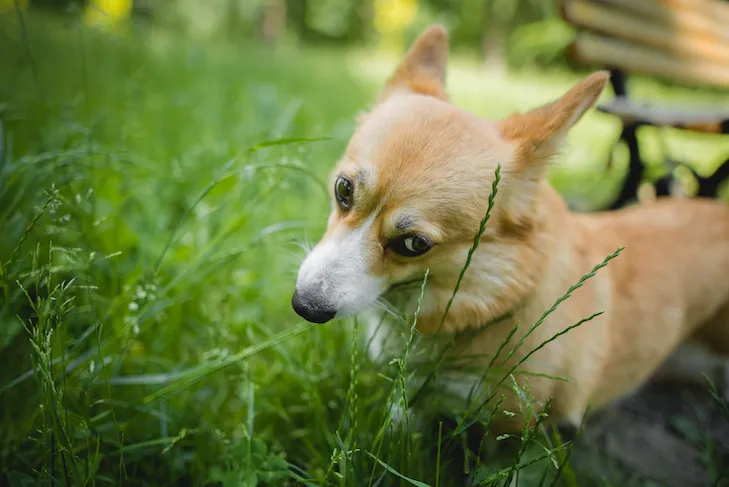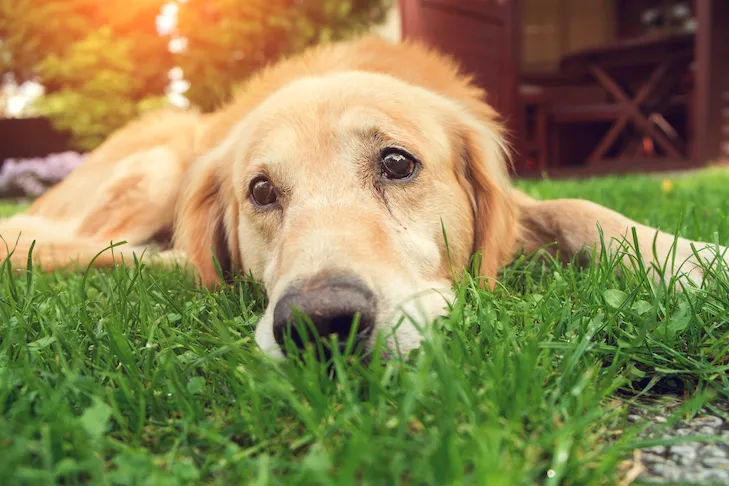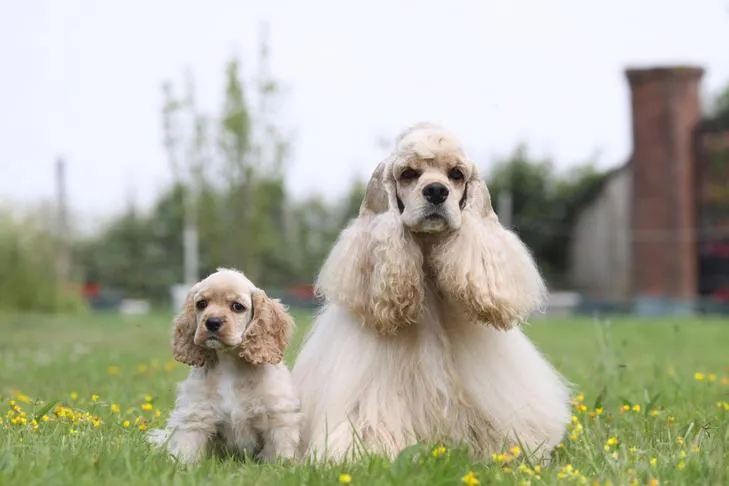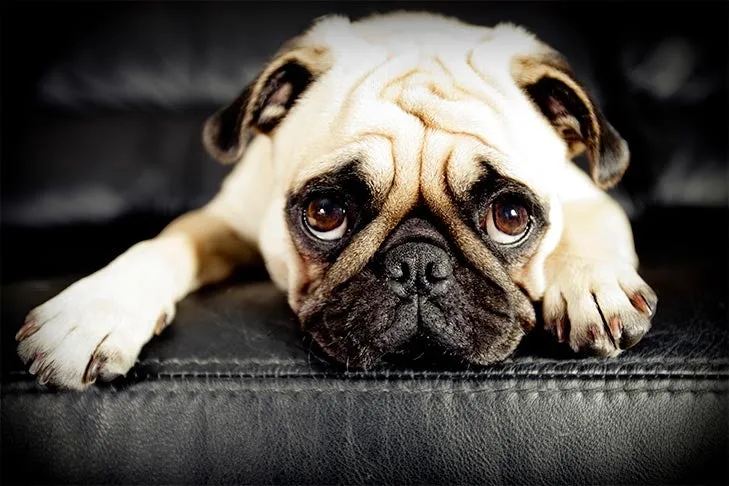Discovering your beloved canine companion indulging in a habit as unappealing as eating poop, scientifically known as coprophagia, can be one of the most perplexing and often revolting behaviors for any dog owner. While it’s certainly a gross sight for us humans, this common phenomenon is far from an attempt by your dog to disgust you. In fact, understanding the underlying reasons and implementing targeted strategies can effectively curb this unsavory habit, turning a seemingly hopeless situation into a manageable one. Before you despair, know that there are numerous ways to discourage poop-eating, ranging from simple behavioral modifications to specialized products designed to make feces less appealing.
For many dog owners, the act of their dog eating poop is a major concern, often leading to frustration and even contemplating rehoming. However, it’s crucial to remember that coprophagia is a relatively widespread issue within the canine world, rooted in both behavioral and physiological factors. A study presented at the American Veterinary Society of Animal Behavior annual conference, led by Dr. Benjamin Hart from the University of California, Davis, revealed just how common it is: approximately 16% of dogs are considered “serious” poop eaters, observed doing so five or more times, and 24% of dogs were seen eating poop at least once. This suggests that for some dogs, it’s an ingrained behavior rather than a sign of defiance or poor training.
The prevailing theory among scientists, as Dr. Hart suggests, is that “eating of fresh stools is a reflection of an innate predisposition of ancestral canids living in nature that protects pack members from intestinal parasites present in feces that could occasionally be dropped in the den/rest area.” Essentially, it’s a survival instinct passed down through generations. Dogs evolved as scavengers, adept at consuming whatever they could find to survive, meaning their perception of what constitutes an acceptable meal differs significantly from ours. Animal behaviorist Steven R. Lindsay further supports this in his Handbook of Applied Dog Behavior and Training, positing that coprophagia “may be one of several appetitive survival behaviors that have evolved to cope with the periodic adversity of starvation.” In ancient times, a dog couldn’t afford to be picky when food was scarce.
Unpacking Why Dogs Eat Poop
Understanding the root causes of coprophagia is the first step toward finding a solution. While it’s repulsive to humans, dogs don’t perceive it the same way. This behavior can stem from various factors, some of which are entirely natural, especially during certain life stages, while others might signal underlying health issues or behavioral responses.
Is It Normal for Dogs or Puppies to Eat Poop?
In some animal species, like rabbits, consuming their own feces (cecotrophy) is a vital part of obtaining essential nutrients, and preventing this can lead to health problems. Fortunately, dogs don’t require this for nutrition. However, for dogs, eating poop can be a normal, albeit temporary, behavior during specific life stages. Mother dogs, for instance, will meticulously clean their puppies and consume their waste for the first three weeks post-birth to keep the den sanitary. Puppies themselves often engage in this exploratory behavior, eating their own poop (autocoprophagia), feces from other dogs (allocoprophagia), and even droppings from cats or other animals. Many puppies find horse manure and goose droppings particularly enticing.
While a puppy eating its own poop isn’t inherently dangerous, consuming feces from other animals can pose health risks if the stool is contaminated with parasites, viruses, or toxins. In most cases, this exploratory behavior in puppies naturally diminishes by the time they are about nine months old. If you’re concerned about your puppy’s diet and potential deficiencies, it’s wise to consult your vet about their nutritional needs, especially regarding what can a one month old puppy eat.
 Pembroke Welsh Corgi eating grass in the park, looking around curiously.
Pembroke Welsh Corgi eating grass in the park, looking around curiously.
Underlying Reasons for Adult Dogs Eating Poop
If an adult dog suddenly begins eating poop, a veterinary visit is highly recommended. It’s crucial to rule out any underlying health problems that could be driving this behavior. Conditions such as parasites, certain medications like steroids, malabsorption syndromes, diabetes, Cushing’s Disease, and thyroid disease can all lead to an increased appetite, making poop a seemingly viable food source. Additionally, diets lacking sufficient nutrients or calories might prompt a dog to seek out additional sustenance in the form of feces. It’s important to understand what not to feed dogs list to ensure your dog is getting a balanced diet and avoiding harmful substances.
Beyond medical issues, several environmental or behavioral triggers can cause a dog to develop a poop-eating habit.
Isolation
Dogs that spend significant amounts of time isolated, such as those kept alone in kennels or basements, are more prone to developing coprophagia. This behavior can be a response to loneliness or boredom, acting as a form of self-stimulation when lacking sufficient interaction and enrichment from their human companions.
Confinement to Small Spaces
Similar to isolation, prolonged confinement in small spaces can contribute to this problem. Dogs rescued from overcrowded animal shelters often exhibit coprophagia, likely due to the stress and limited environment they experienced. Ensuring your dog has adequate space and opportunities for exercise is vital for their mental and physical well-being.
Anxiety
Coprophagia can also be a manifestation of anxiety, particularly if a dog has been subjected to harsh or punitive house-training methods. A dog might eliminate and then eat its own poop in an attempt to “hide the evidence” and avoid punishment, inadvertently creating a vicious cycle where the behavior is reinforced by the very punishment it seeks to avoid. This highlights the importance of positive reinforcement in training.
 Sad Golden Retriever lying on the ground, looking distressed.
Sad Golden Retriever lying on the ground, looking distressed.
Attention-Seeking
Dogs are intelligent and observant, quickly learning which behaviors elicit a reaction from their owners. Eating poop, while disgusting to us, often guarantees a strong, immediate response. If your dog learns that this action results in you rushing over, even if to scold them, they may repeat the behavior to gain your attention. The key here is to try and avoid overreacting when you witness it.
Inappropriate Association With Real Food
Sometimes, dogs can form an inappropriate association between the smells of food and feces, especially if their feeding area is too close to their elimination spot. This can blur the lines in their minds, making them less able to differentiate between acceptable food and waste. It’s crucial to keep feeding and watering areas distinctly separate from where your dog relieves itself.
Smelling Poop on Their Mothers
As Steven R. Lindsay noted, puppies can sometimes become confused if they detect fecal odors on their mother’s breath after she has cleaned them. Furthermore, in some instances, mothers may regurgitate food that is mixed with puppy fecal matter, which Lindsay refers to as “appetitive inoculation.” This early exposure could potentially predispose a puppy to developing this undesirable habit later in life.
 Cocker Spaniel mother sitting next to her puppy outdoors in a grassy area.
Cocker Spaniel mother sitting next to her puppy outdoors in a grassy area.
Living With a Sick or Elderly Dog
In multi-dog households, a healthy dog might consume the poop of a weaker, sick, or elderly companion, particularly if that dog experiences fecal incontinence. Scientists hypothesize that this behavior might be linked to an innate instinct to protect the “pack” from potential predators by eliminating scent trails. This protective instinct, while well-intentioned, can lead to unpleasant situations for owners.
What Can I Give My Dog to Stop Eating Poop? Effective Strategies
Addressing coprophagia requires a multi-faceted approach, often combining dietary changes, supplements, and behavioral training. The most effective solution typically depends on the underlying cause. If you’re dealing with an ongoing issue, always consult your veterinarian first to rule out medical conditions and get tailored advice. They can also refer you to a behavioral expert if necessary. For dogs that are picky eaters or have upset stomachs, finding the right food is crucial, such as exploring what can i give my dog to make her eat or what food to give puppy with upset stomach.
Vitamin Supplements for Dogs Eating Poop
A long-standing theory suggests that dogs eat poop due to nutritional deficiencies. Specifically, a Vitamin B deficiency has been a prime suspect, a notion supported by studies, including one in 1981 showing fecal microbial activity synthesized thiamine (a B-vitamin). Other research has also pointed to various missing nutrients. Providing a high-quality dog multivitamin may help fill any nutritional gaps that could be contributing to coprophagia, making it a viable option for owners exploring “What Can I Give My Dog To Stop Eating Poop.”
Enzyme Supplements for Dogs Eating Poop
Modern canine diets, often higher in carbohydrates and lower in meat-based proteins and fats compared to their ancestral diets, can sometimes lead to digestive inefficiencies. Some dog owners have reported success using digestive enzyme supplements for dogs. Certain products contain papain, an enzyme known to aid digestion, which theoretically could help dogs extract more nutrients from their food, thereby reducing the urge to seek them elsewhere.
Taste-Aversion Products for Dogs Eating Poop
The premise behind taste-aversion products is simple: make the poop taste so unappealing that the dog will no longer want to eat it. These poop-eating deterrent treats or poop-eating deterrent powders, added to a dog’s food, often contain ingredients like monosodium glutamate, chamomile, pepper-plant derivatives, yucca, garlic, and parsley. It’s crucial that all dogs (and sometimes cats) in the household consume the deterrent, as the goal is to make all available feces unpalatable to the offending dog. Some owners also use bitter-tasting sprays applied directly to feces to make them less attractive.
 Close-up of a Pug laying on a black leather chair, looking with sad, expressive eyes.
Close-up of a Pug laying on a black leather chair, looking with sad, expressive eyes.
Managing the Environment for Dogs That Eat Poop
Perhaps the most effective and sustainable long-term solution involves a combination of training and meticulous environmental management. This includes ensuring you have the right equipment for feeding, training, and walking your dog. A clean environment is paramount: keep your dog’s living area, including the yard, meticulously clean to eliminate any tempting piles of feces. Supervise your dog closely during walks and pick up their poop immediately, leaving no opportunity for them to indulge.
Reinforce strong training cues like “leave it” and “come“. A practical exercise involves teaching your dog to immediately come to you for a highly rewarding treat as soon as they have defecated. This helps them associate elimination with a positive interaction and a tasty reward from you, rather than turning their attention to the repulsive “treat” on the ground. If you have a cat, ensure the cat litter box is kept clean or is placed out of your dog’s reach. Options like self-cleaning cat litter boxes or using a dog gate can effectively restrict access and prevent your dog from indulging in this undesirable behavior. When considering your dog’s diet and any potential risks, remember that what meat is dangerous for dogs is an important topic to stay informed about.
Fascinating Facts About Canine Coprophagia
While the act of dogs eating poop might be unpleasant, there are some intriguing facts about this behavior. In puppies, coprophagia is often viewed as a normal part of exploring their world. Most will simply sniff and investigate, but some adventurous pups will put everything, including feces, into their mouths.
One peculiar observation is that dogs rarely eat soft, poorly formed feces or diarrhea; they seem primarily attracted to firm stools. Frozen poop, in particular, appears to be an especially exciting treat for dogs with this habit. Dr. Hart’s study also revealed several other interesting points:
- Coprophagia is more prevalent in multi-dog households. Only 20% of dogs in single-dog homes had the habit, which rose to 33% in homes with three or more dogs.
- Dogs who eat poop are generally no harder to house train than any other dogs.
- Female dogs are more likely to exhibit coprophagia, with intact males being the least likely.
- A significant 92% of poop eaters prefer fresh feces, typically only one to two days old.
- Remarkably, 85% of dog poop eaters will not consume their own feces, preferring poop from other dogs.
- Dogs described as “greedy eaters,” often those who steal food off tables, tend to be more prone to eating poop.
If you catch your dog eating poop, discussing it with your veterinarian is always the best first step. Pinpointing the exact cause of your dog’s coprophagia is crucial for determining the most appropriate solution and ensuring their long-term health and well-being. By understanding the reasons and employing targeted strategies, you can help your dog overcome this habit and restore peace (and cleanliness) to your home.
